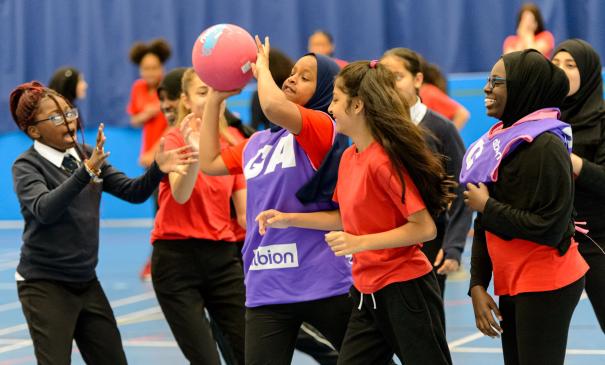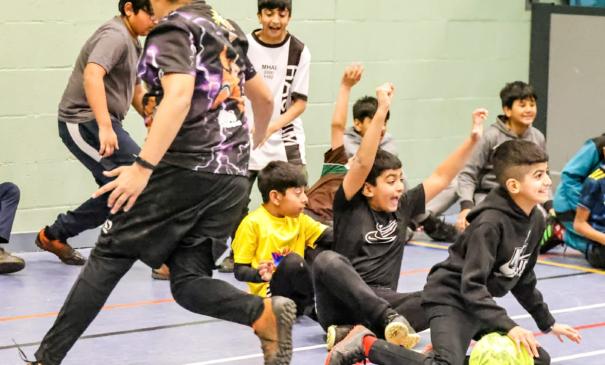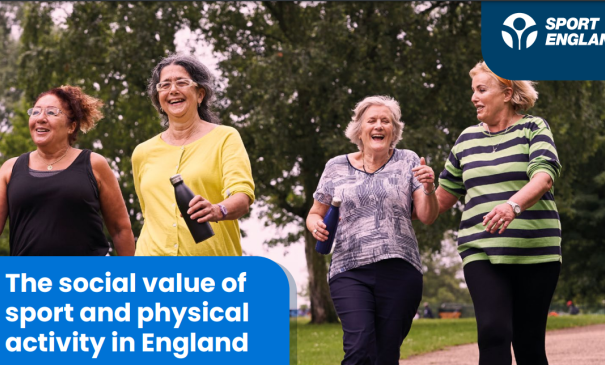Anthony York is co-founder and CEO of Boxing Futures, the charity which uses boxing to help young people reach their potential. In the first article in our ‘Adapt, Support, Respond’ series, Anthony (pictured below) talks about the challenges facing his organisation during lockdown, and how they have adapted to meet the needs of vulnerable young people in the local community during the pandemic.
The first lockdown was a real shock for us, but we were able to put some staff on furlough while we worked out what services we could bring online. We were able to diversify some of our income into improving our website and getting a Zoom function, and that enabled us to deliver our online sessions more easily. This all meant that by the third lockdown, we had learned to speak to our funders quickly and we were able to make that transition very quickly.
Also, because our programmes are a mix of sport, and informal social and emotional learning, we fall under the National Youth Agency guidelines, and our staff and coaches are effectively key youth workers. This means that – although we are operating at around 15 to 20% of our pre-Covid capacity – we are able to operate two support programmes through lockdown for vulnerable young people, Sisters Through Boxing and Brothers Through Boxing. They are aimed at combatting social isolation and loneliness, and improving social connections.

It’s important to emphasise that these are some of the most vulnerable young people. As an example, one of the attendees for our Support Group Boxing programme is in local authority care. They live with foster carers and it is quite a stressful situation because one of the foster carers is very unwell. They are having to be shielded so it has a big impact on the mental wellbeing of the rest of the family. Most looked-after young people come with a set of issues which can be complex, and being able to provide support for them at a time like this – as well as providing some respite for the foster carers – is seen as vital to reduce the risk of that placement breaking down, which would have all sorts of knock-on effects for the young person.
We have other examples where people have been in homes and suffering from domestic violence. We offer a space and time for young people to come and express themselves. It’s not just about boxing, it’s a six-month programme where they go through a series of toolkits, for example role-playing where they discuss a set of issues. We have a counsellor who is part of the team and will offer extra support outside of the session.
Our schools provision has been stop-start over the last year, and in fact some of our schools needed us even more when they went back in September, in terms of us providing alternative education provision for those who were struggling at school, vulnerable or teetering on the edge of exclusion. In lockdown two it continued but in lockdown three it has ceased, so we are providing an online offer through the schools we work with.

As a small charity, funding is always at the forefront of our minds! Yet, we have acted dynamically and made the adjustments necessary to maintain a service for young people. With the help of the furlough scheme, we have been able to navigate our way through this so far. The hardest decision was in losing several talented sub-contractors, as many of the non-essential programmes are not being delivered at the moment.
Our funders expect their money to have an impact, and a commitment that we will produce positive outcomes, thus it has been necessary to have important conversations around negotiating what those delivered outcomes might be in the current climate. Funders, such as the Movember Foundation have been very flexible and helpful, (supporting us in adapting our website and improving our online offer), whilst the DCMS, in partnership with the Co-op Foundation, have enabled us to deliver some of our key programmes online. Boxing Futures were in the midst of a three-year funding cycle with Children in Need and contact came early, as we knew our year one outcomes were going to look very different to year two.
Normal fundraising activities, which we rely on so much, have been decimated and other fundraising streams through trusts and foundations have mostly been moved to emergency Covid response funds. We fall outside of the criteria for that, so we have not been able to access any emergency Covid funding.
It’s been very tough, but we remain optimistic and we will not let our heads drop. We are constantly seeing what else we can do for the communities where we are located, for example supporting food hubs by delivering food which has not been sold and would otherwise go to waste, or using our Minibus to deliver meals wherever we can.

We know the need for what we do is great now, but we know going into the future and as we look to the recovery from the pandemic, we are going to be needed even more. We want to expand our services as and when the restrictions get lifted. We are not interested in world domination, we just want to do meaningful work. Whether we have one or 15, or 20 projects, it is about the quality of the work and the behaviour change that we see in the young people. This is what matters.
I am a foster carer and I know there are a lot of young people who actually shouldn’t be in foster care, but there is a lack of alternative settings for them. They remain in the system and foster carers are working under extremely challenging situations. There’s no outlet for these young people – I know the need that there is, and I feel it personally.
We know that no-one will fund what we are doing unless we are producing some kind of outcomes. A lot of the work that we do is anecdotal and can be hard to measure, but we use the tools at our disposal, so for loneliness and isolation we use indices that are given to us by DCMS, and for mental health we use the Warwick & Edinburgh Mental Wellbeing Scale measurements, so we do our very best to demonstrate those important outcomes. Ultimately it is down to my staff, the coaches and volunteers – they make the difference.



